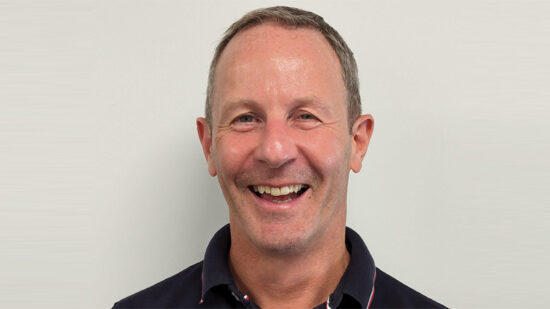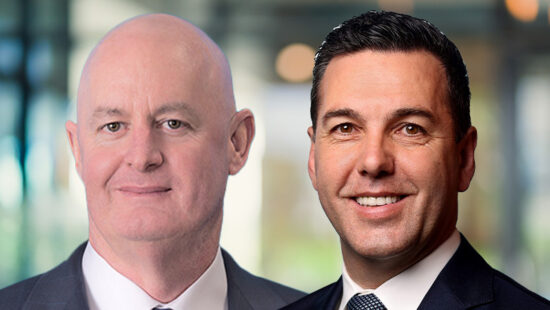The stockbroking firm was called Margetts & Addenbrooke, but he decided to retain the first name only as it neatly combined his mother’s name, Margot, and the Ricketts family name.
Toby Ricketts came on board in 1994, two years after his father had set up the Margetts International Strategy Fund, a fund of funds.
He says the concept was for clients to hold an easy-to-value full portfolio but it became clear that even as a core holding, it was hard to get cautious or more aggressive clients into an international fund.
Early adopters
“The whole fund to funds industry was in its infancy in those days. So, not particularly realising it, it was invented because of necessity, but it seemed to work. We’re not aware of anybody really running the risk rating concept back to 1994 when we established it. Since the noughties, risk rating is everywhere, and we feel we’ve got a bit of a claim of being there very early on for something that became quite mainstream in the end.”
The business grew to the point where the IFA practice was sold off, and Margetts was established as a standalone fund management group with around £100m of assets.
Today, that figure has grown to £1.6bn, which, “for a provincial firm in Birmingham is a good level of growth. We’re certainly proud of it”, he says.
There are now four funds in the range across the risk spectrum, with international advisers accessing the products mainly through offshore bonds.
Feeling the heat
“They’re all run to the same investment ideas but each fund has a strategic asset allocation where we say. If we didn’t have a view on anything, this is how it would be invested’.
What we then try to do with our tactical allocations is not change the risk profile of the funds. We risk-rate all asset classes on our website, with a risk heat map, and we build our strategy by taking the various levels of risk within the appropriate funds.”
Every Tuesday, Tim Ricketts chairs an investment committee to debate the economic news of the week and whether it supports the investment strategy or not.
“We write up a diary after every investment meeting and we publish it on our website, so people who want to know can find out what we were thinking in previous years.
“The asset allocations don’t change much from week to week or month to month, but we do feel from time to time we hit an inflection point. That is when we will be more aggressive with our asset allocations.”
Bubble trouble
One of the calls that built Margett’s 10-year track record was its very conservative stance in 2007/8, when the portfolios went between 20% and 30% liquid.
“Credit expansion was on a curve we were very uncomfortable with, because we knew it wasn’t sustainable. What we hadn’t worked out was that it meant the whole global financial system would collapse.”
He is keen to underline that Margett’s skill set is focused on looking at long-term directions of economies, using experience and analysis to weight equities and “take risk off the table”.
Right now, he argues bonds are in a bubble and that “it’s a matter of time” before bond investors lose money.
“We know people started last year with a similar view, and some of them have capitulated. Especially recently, we’ve seen a lot of capitulations on the market. That’s always indicative of a bubble.”
This has resulted in a big underweight position in bonds and an overweight in equities.
“What we are trying to do is find equities that are proxies for bonds – areas where there are high levels of dividend we think are going to be sustainable because, on a simplistic basis, the FTSE’s yielding 4% and bonds are yielding less than two. That’s a very high yield premium for equities.”
In order to offset that risk, part of the portfolio is held in cash.
Geographically, while there is no strong house view on which part of the world to be in for equities, in terms of types of stocks there is a bias towards large caps for security.
“The UK had a terrible year last year. The US seems to be the favourite market at the moment but Asia’s had a very good couple of quarters.
The performances in the short term are actually moving around quite a bit, which I think tells you that you need a bit more of a spread.”
QE questions
As for problematic economies, Ricketts suspects there is less risk in Europe than people think at the moment.
“The biggest risk in Europe is political, but it comes and goes very quickly and investors are reacting too much to political statements,” he says.
His big question is about how the economic scenario will work out for Japan in the end. “I just feel Japan is pushing the QE button bigger and longer than everybody else, and if it’s going to work, then Japan’s the best market. Japan will be the best or worst market from here. That’s not sitting on the fence. My feeling is it will probably go on the negative side at some point.
“It is just this overwhelming debt burden, with easy monetary policies seeming to be a global theme at the moment.
“Looking through that, with a debt to-GDP ratio that Japan’s carrying, which is well over 200%, if the cost of refinancing their debts increases, and I’m thinking now over the next five to 10 years, that could really put a dent in their economic growth.”
So rather than being a very strong performing market at times, “it could again turn into one of those markets where it just seems to continually lack”, he says.
His theory on how the QE process will phase out, with the benefit of hindsight sometime in the future, is that central banks went too far for too long, and they created a long inflationary cycle on the back of it.
“Now nobody is talking about inflation, which is why I think it’s probably the time to talk about it. The thing that you should be worried about is usually the thing that nobody’s worried about, and in fact everybody’s worried about the reverse.
Game theory
“They are worried about deflation. Anybody who’s ever played Monopoly understands the danger of quantitative easing, because every time a player passes ‘Go’, £200 is injected into the game, and you see rapid inflation in the prices of assets. You also see concentration of wealth ultimately to one player. That, on a much larger scale, is the challenge.”
Ricketts maintains that what quantitative easing has done is to help the already affluent because inflation has come through in asset prices but not yet in consumer prices.
“Equities should have a good year, outside of the energy sector where energy prices are going to remain low. It’s probably a time I’ll start looking at high-risk areas even moving down into smaller companies, because if we do get economic lift-off then we often see higher growth rates – and we should be avoiding bonds at the moment.”







